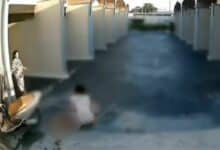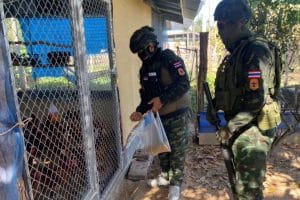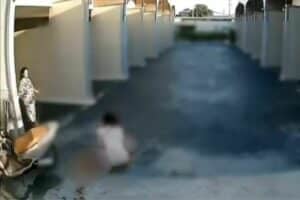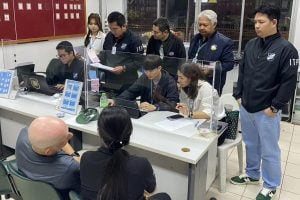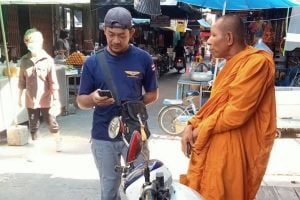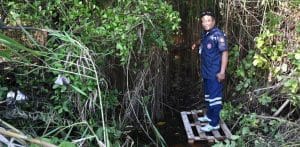Mosquito bite in Thailand causes Dutchman to lose both legs
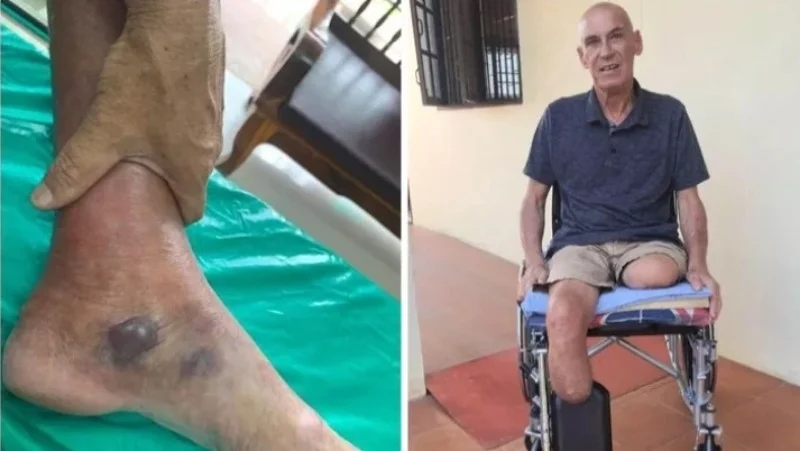
A Dutchman living in Nakhon Rathasima in Thailand is on a mission to spread awareness about “flesh-eating bacteria” (necrotising fasciitis) after a mosquito bite led to the amputation of his left leg and lower right leg.
Long-term expat, 62 year old Ed Olieslagers from the Netherlands, went to the hospital in April last year after a mosquito bite became inflamed and painful with no signs of healing.
Just two hours later, Ed was diagnosed with necrotising fasciitis, a rare bacterial infection that spreads rapidly and can cause death.
“And that was only the beginning of a long period of operations, medications and terrible pains that I still cannot describe in words,” Ed told the Phuket News.
After nine operations, it was clear that Ed’s left leg would need to be amputated above the knee to save his life, four months after his diagnosis.
Then, Ed’s lower right leg also had to be amputated due to thrombosis complications.
Ed spent many years living in Phuket and later ran a successful swimming pool and construction business called Samui Water Solutions Ltd. However, his business collapsed during the Covid-19 pandemic.
Having no income and a mountain of medical bills, Ed launched a GoFundMe appeal called ‘Ed Olieslager’s Road to Mobility‘, with a target of 50,000 euros (1.8 million baht).
So far, Ed has received just 780 euros in donations (27,802 baht).
Ed wants to pay his outstanding medical bills, which were covered by his friend Judy initially. Ed wants to pay back 650,000 baht.
Prosthetics and mobility solutions will cost Ed a further 500,000 baht…
“Prosthetics are expensive. And I also plan to use an ATV to get around.”
Once Ed is mobile again in the future, he plans on starting a new business.
Returning home to the Netherlands is problematic as airlines said that Ed isn’t allowed to travel alone without prosthetics. Then, the process for registering for welfare could take him around eight months, he said.
Ed explained that awareness of his disease is almost non-existent in society and even medicine knows little about it…
“In my specific case, the body started reacting positively and then a new infection developed again and again… I finally ended up twice in a sepsis situation, meaning the body started switching off non-vital parts, which results in death unless you take emergency action like an amputation.”
In Ed’s case, it started with a mosquito bite. However, the disease can start from any lesion of skin tissue, like cat scratches, open wounds on the foot, or even shaving wounds.
“Treatment starts often with trial and error.”
In January, the Immortals Thailand group held a fundraising event for Ed in Nakhon Ratchasima.
Ed is determined to raise awareness about the disease, which he says no one else is doing.
In December, a South Korean man died from a rare disease called “brain-eating amoeba” (Naegleria fowleri) upon returning from Thailand.
Naegleria fowleri is a single-celled organism – an amoeba – that lives in soil and freshwater, such as lakes, rivers, and waterfalls all across the globe. The amoeba enters the body through the nose, travels to the brain, and eats.
With a death rate of over 97%, most people infected with Naegleria fowleri do not survive. Cases are fairly rare and this was the first of its kind in South Korea.
Last month, an Australian woman’s mystery illness was finally diagnosed after seven years, pointing back to her holiday in Thailand, where she contracted a rare parasite called gnathostomiasis.
Latest Thailand News
Follow The Thaiger on Google News:

